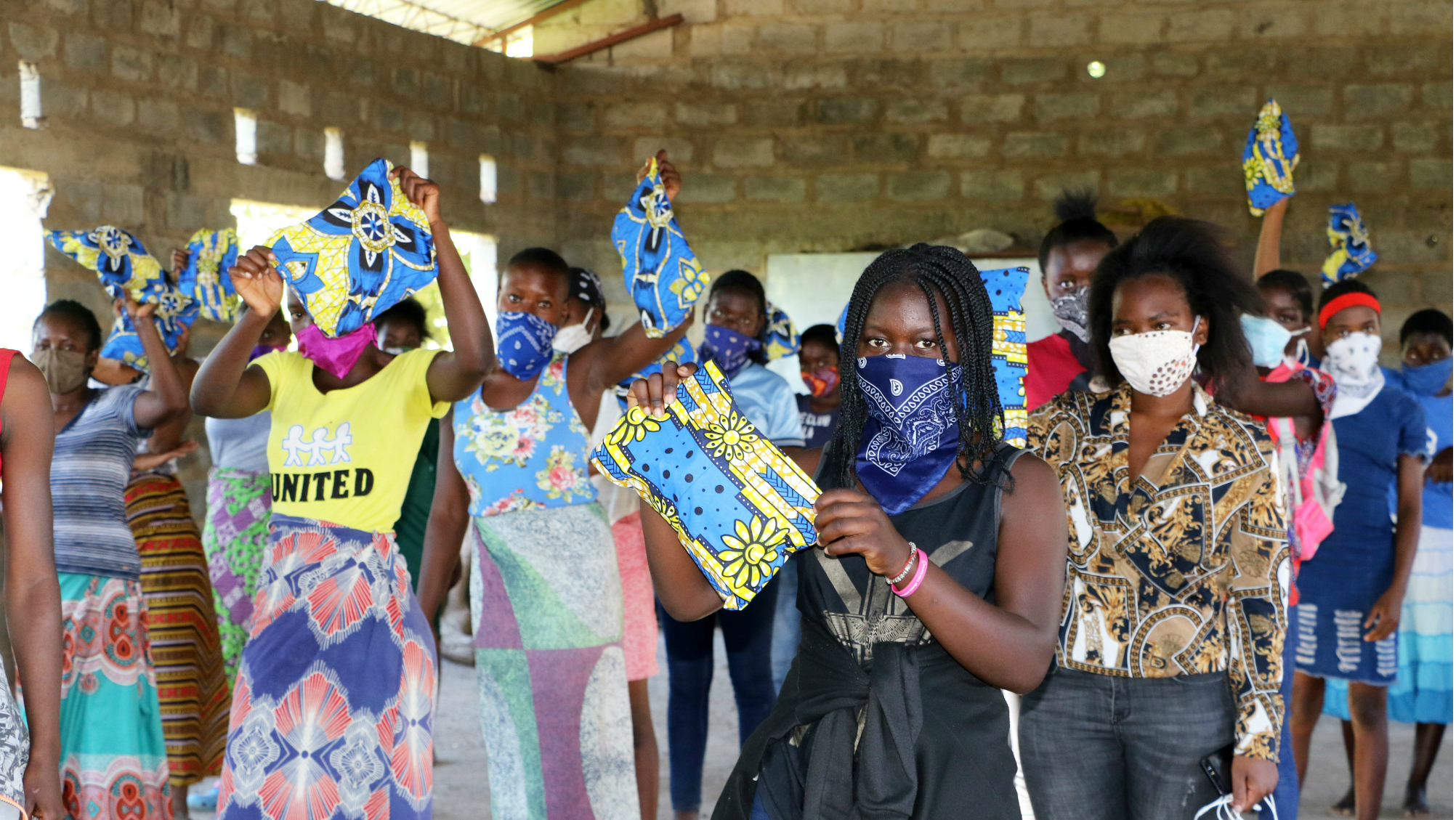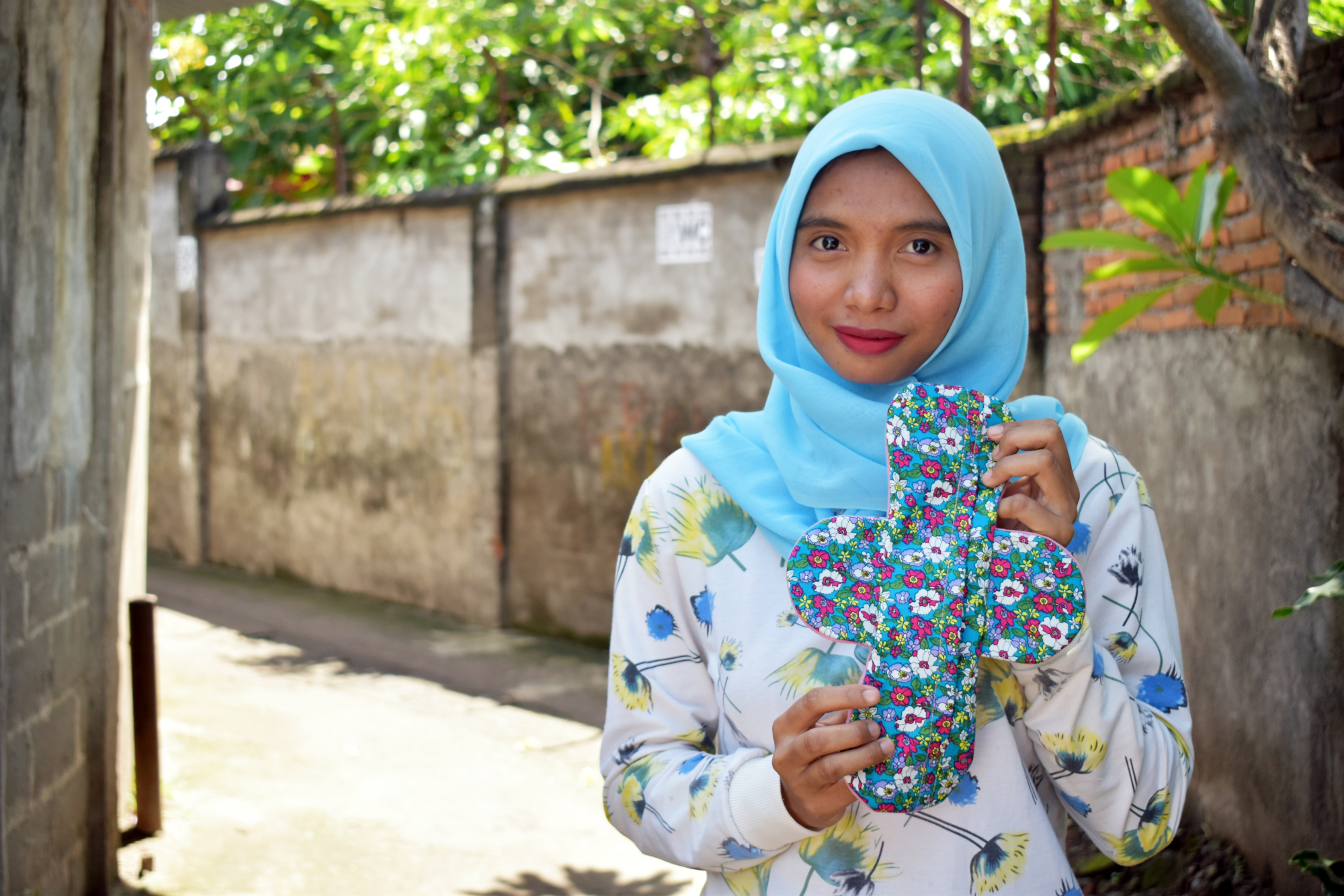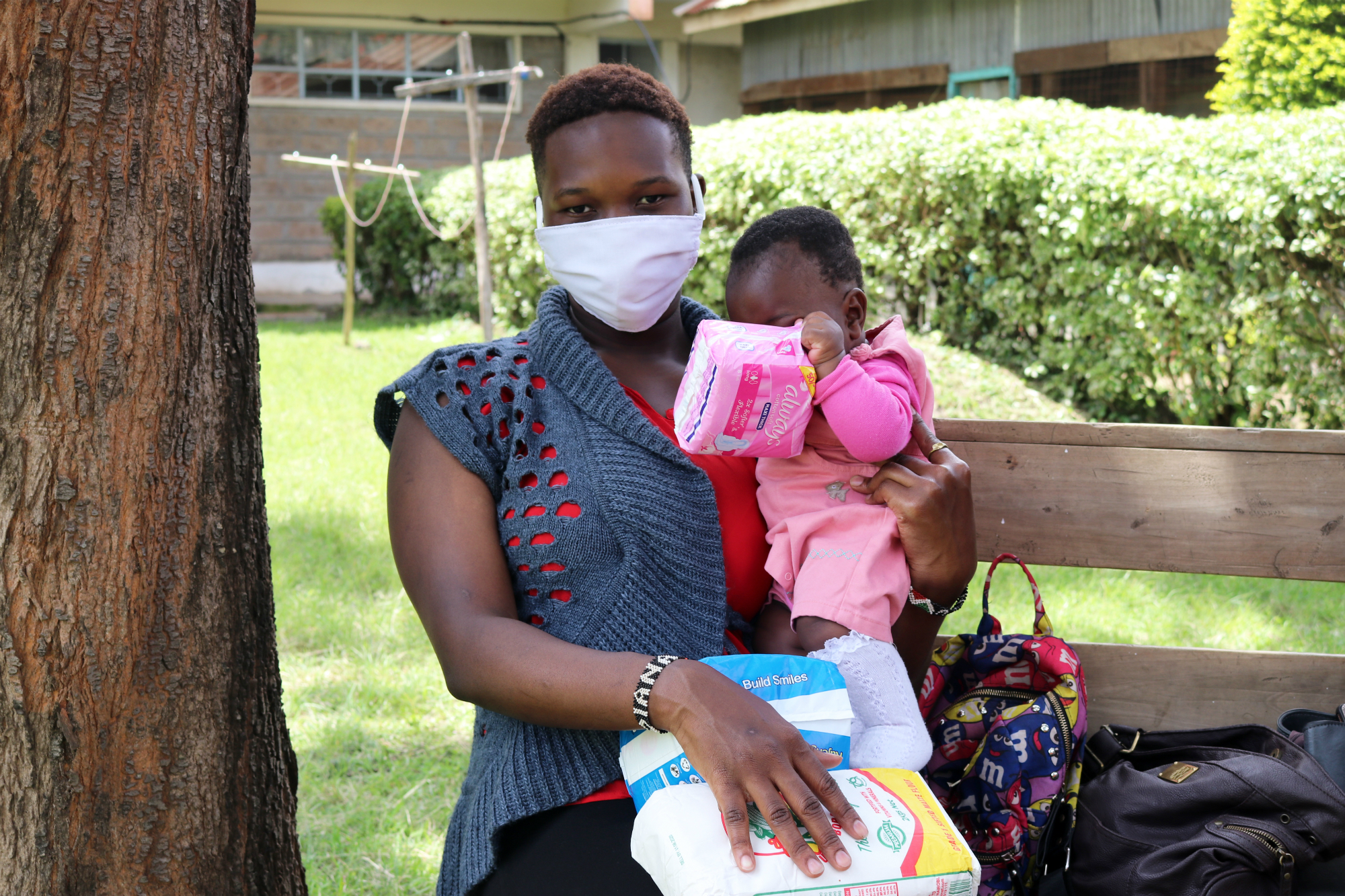Periods don’t stop for a pandemic, which is why hygiene kits are essential
As young women struggle with severe shortages and price hikes, period poverty is spiking under lockdown. On World Menstrual Health Day, we look at why receiving a period pack will transform the ability of girls to manage their periods safely and with dignity


Celebrity news, beauty, fashion advice, and fascinating features, delivered straight to your inbox!
You are now subscribed
Your newsletter sign-up was successful
As young women struggle with severe shortages and price hikes, period poverty is spiking under lockdown. On World Menstrual Health Day, we look at why receiving a period pack will transform the ability of girls to manage their periods safely and with dignity
Right now, 3 in 10 girls in the UK can’t get access to adequate sanitary wear in lockdown. Too many have been forced to improvise just so they can manage their period, with over 54% shockingly using toilet paper as an alternative - placing them in danger of infection.
This is a reality for young women worldwide. According to a new report by Plan International UK, severe shortage of period products, price rises and a lack of access to information and services has left almost 75% of women and girls surveyed struggling to manage their periods in the midst of the pandemic.
‘Periods don’t stop for a pandemic', said Rose Caldwell, chief executive of Plan International UK. 'Whether we're talking about girls in the UK, Rwanda, Australia or Nepal, the coronavirus crisis is making it harder for girls and women to manage their periods safely and with dignity.'
So to protect those being disproportionately affected by the crisis, Plan International has launched a dynamic initiative to provide young women with menstrual hygiene kits which allow them to manage their periods - free of shame and discomfort.

Containing pairs of underwear, a reusable sanitary pad kit and four bars of soup, as well as information on sexual and reproductive help, these vital kits are currently being distributed to women and girls across Africa and India.
‘We used to be able to get sanitary towels and diapers in schools, but since they closed, we haven’t been able to access them’, says Diana, a 21-year old mother from Kenya. ‘Receiving these essential packs is life-changing for young mothers like me.’
Celebrity news, beauty, fashion advice, and fascinating features, delivered straight to your inbox!

With 24,296 households in India alone having received a dignity kit from Plan International so far, the initiative has helped shake the shame and stigma from the experience of many girls on their periods. But as the charity's recent findings show, there is still a long way to go before period poverty is adequately tackled.
Speaking of the need for action, Caldwell said: ‘It’s critical that governments and health agencies prioritise menstrual hygiene management in their response to the coronavirus crisis and treat sanitary products as essential items during the pandemic and beyond.'
To get involved in the fight against period poverty, donate to Plan International UK’s Coronavirus Children’s Emergency Appeal here.
Niamh McCollum is Features Assistant at Marie Claire UK, and specialises in entertainment, female empowerment, mental health, social development and careers. Tackling both news and features, she's covered everything from the rise of feminist audio porn platforms to the latest campaigns protecting human rights.
Niamh has also contributed to our Women Who Win series by interviewing ridiculously inspiring females, including forensic scientist Ruth Morgan, Labour MP Stella Creasy and ITV’s former Home Affairs Editor Jennifer Nadel.
Niamh studied Law in Trinity College Dublin. It was after enrolling in a Law & Literature class on her year abroad in Toronto that her love of writing was reignited. In no particular order, her big likes are Caleb Followill, hoops, red wine, sea swimming, shakshuka and long train journeys.
